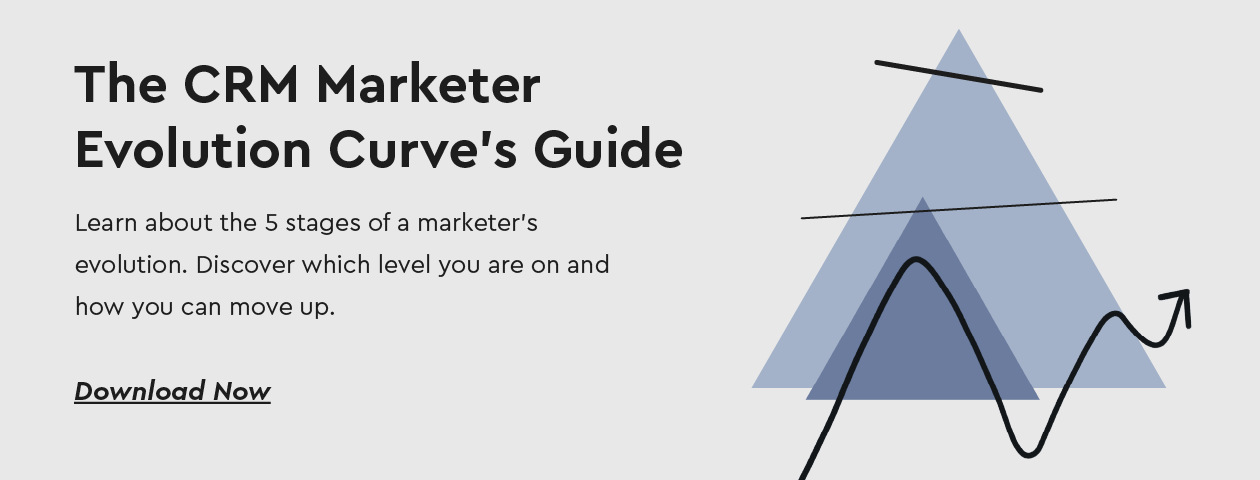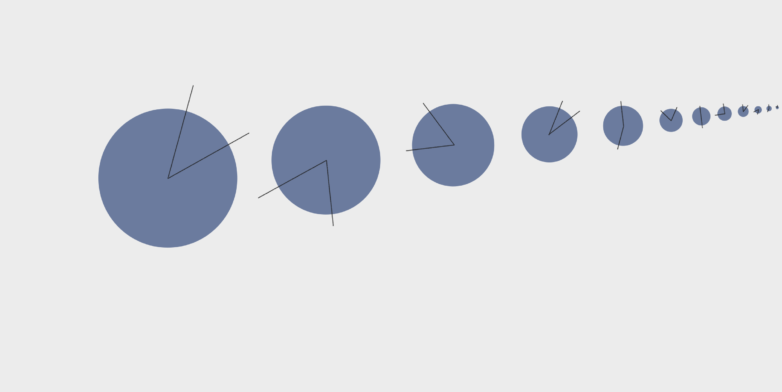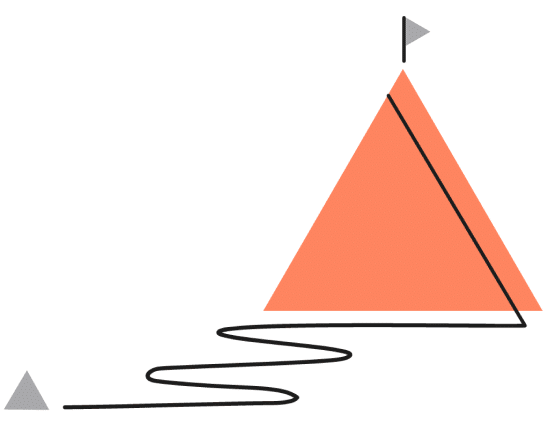What is Artificial Intelligence (AI)?
Artificial Intelligence (AI) refers to the programming of machines to think like humans in order to make decisions or discover insights. AI has many different applications across industries and subset fields, with its most famous subset being Machine Learning.
In marketing, common applications include uncovering new segments, optimizing message delivery and orchestrating multichannel marketing campaigns.
- AI in analytics – Many applications exist for the use of artificial intelligence in marketing analytics. Some focus on the analysis of customer data to discover new insights for communication. For example, Natural Language Processing (NLP), a form of AI, can be used to understand what a customer’s sentiment is following a specific brand interaction providing valuable insight into what message should be shared with them next. Other focus on after the fact analysis to determine the best performing combination of marketing campaigns to increase a specific KPI.
- AI in campaign creation – The use of AI for campaign creation covers the complete creation process, from the dynamic discovery of homogenous segments of customers as well as the recommendation of content for campaigns. AI algorithms can be leveraged by marketers to identify new audiences or subset of existing audiences that are responding in a particular manner to a communication, allowing marketers to adjust accordingly. Similarly, marketers can use AI to dynamically determine what content should be shown to customers based on their unique characteristics. For example, dynamically changing the recommended products presented in an eCommerce site based on a product recommendations algorithm.
- AI in campaign orchestration – With campaign orchestration being the process of deciding what campaign, of all available, should be sent, the use of AI in this field is a must when striving for individualized customer experiences. AI allows marketers to scale the amount of campaigns and journeys they create, without having to worry about defining which campaign to send to each customer next. AI models can quickly identify all available campaigns for each customer and determine the next-best-action for them, optimizing marketing automation.
AI in Marketing
As described above, AI can be used for many applications within marketing. With that said, each organization and its marketers should define which AI applications to use first based on the value these can bring. Some common applications of AI in marketing are:
- Data Insights – AI can be used as a tool to provide data insights, specifically for marketing teams who don’t have access to data engineers. For example, AI models can identify patterns in customer data and autonomously cluster customers based on those patterns. AI can also support result analysis by helping discover the impact campaigns had on different KPIs by powering analytic models such as marketing mix modeling and multi-touch attribution.
- Personalization – A common use case of AI in marketing is for personalization. Due to their scale and speed, AI models are particularly helpful when needing to identify customer preferences and personalize content in realtime. Common use cases for AI in personalization include models for product recommendations, dynamic websites, self-optimizing campaigns (where the model determines the best treatment from a multivariate test for each individual customer) and personalized messaging via chatbots.
- Campaign Recommendations – AI can also be used to recommend content to marketers as they build their campaigns. Use cases around this application focus on tone of voice recommendations and reviews and image recommendations. AI can also recommend campaign optimizations such as identifying a subsegment of targeted customers that respond better to the campaign, inefficient campaigns, and campaigns that have significant impact on customer lifetime value.
- Scheduling – Viewed as a subset of Campaign Recommendations, scheduling is one of the most common uses of AI in marketing. With each customer preferring to receive communications at their own time, and based on each individual’s open and click patterns, send time optimization algorithms have become a popular capability in marketing automation software.
- Programmatic Advertising – For marketers advertising digitally, leveraging AI for programmatic advertising provides great benefits. By analyzing data in realtime, AI models can help predict results of campaigns for different audiences, adjust bidding strategies to maximize ROI and match content to audiences to increase relevancy.
- Next-Best-Action Decisioning – The most advanced form of AI in marketing is its application for next-best-action decisioning. This refers to the use of AI to determine which campaign is best for each individual customer, instead of abiding to marketer determined automations. In this setup, marketers define the campaigns and segments (which as said above can also be AI-aided), and the algorithm determines which to deliver to each customer, from all the available possibilities.

What is Marketing Automation?
Marketing automation, acronymed as MA, refers to using technology software to automate marketing tasks and workflows. Marketers use marketing automation to be more efficient and effective when executing marketing strategies. Commonly automated tasks include sending pre-scheduled campaigns via channels such as email, social media and SMS. Marketing automation software usually also include capabilities to schedule multi-step campaigns, also known as customer journeys, which allow marketers to plan a predefined sequence of campaigns to be executed following a specific customer behavior. While some marketing automation tools are channel agnostic, meaning they offer automation for multiple marketing channels, others are channel specific. Channel specific tools will usually include additional automation aspects such as social listening alerts for those specialized in social media. Finally, most marketing automation tools will include some level of reporting and dashboarding to allow marketers to view results of the automations being put in place.
Best Uses of Marketing Automation Tools & Platforms
Marketers use marketing automation tools and platforms for various goals. The most basic form is the automation of emails based on a behavioral trigger such as a form completion or a purchase. Some will then create a multi-step journey which is a delayed set of campaigns that reach to customer’s response, open and clicks, or lack thereof to the previously sent email. However, this basic form falls short in providing customers a personalized experience.
For marketers to reap the most benefit from marketing automation tools they should move beyond that basic use. One way to do so is by leveraging additional data when planning campaigns. The more sophisticated the logic for sending a campaign and the segment a marketer builds, the more value the marketer will receive from its automation platform. In similar fashion, the more segments and campaigns are marketer creates the more impact a marketing automation software will have for that brand, as it can help scale communications without all the manual work involved with sending them each time. Additionally, marketers who leverage automation platforms to manage multiple channels from a single source will see more returns than those who focus on a single channel. Finally, marketers who use marketing automation tools as part of their reporting practices will greatly improve their performance as they will be creating a closed loop of automation that goes from creation, to execution, to insight discovery and back.
The CRM Marketer Evolution Curve’s Guide
Learn about the 5 stages of a marketer’s evolution. Discover which level you are on and how you can move up.
Example: Email Automation
Email automation might just be the most common use of marketing automation. Since email was one of the first digitally native mass communication channels, marketers looked for automations to manage the sheer volume of messages they needed to send. All email automation tools include the ability to schedule an email to be sent at a specific time, for example 9:00AM EST. Some advanced solutions will allow this time to be dynamic, for example 9:00AM based on the customer’s time zone. As previously mentioned, solutions that leverage AI, will allow for send time optimization, meaning that the same email will be sent at different times based on previous customer behaviors.
Email automation tools can also help with the sequencing and triggering of emails based on customer behaviors. Examples of the latter include triggering transactional emails following a purchase or triggering reminder emails for customers who did not complete a purchase and have items in an online cart. However, as their name indicates, email automation tools cannot automate multi-channel campaigns and customer interactions, limiting their use to a single channel.

Orchestrating your Marketing with Optimove
Combining marketing automation with AI allows marketers to go beyond simple automation rules and into marketing orchestration. Optimove’s CRM Marketing Platform is the only solution that provides true multichannel, AI-based orchestration that allows marketers to scale communications while increasing personalization.
Contact us today to learn how you can use Optimove to orchestrate your marketing campaigns and customer journeys.
Get a personalized tour of Optimove
Let us show you how to go from tens to hundreds of segments

